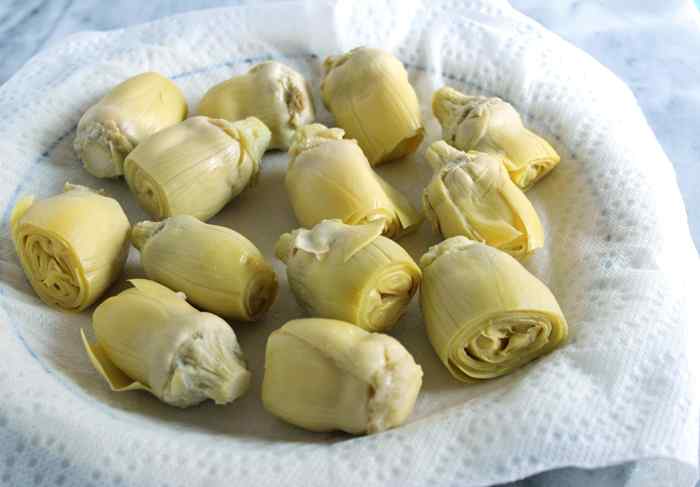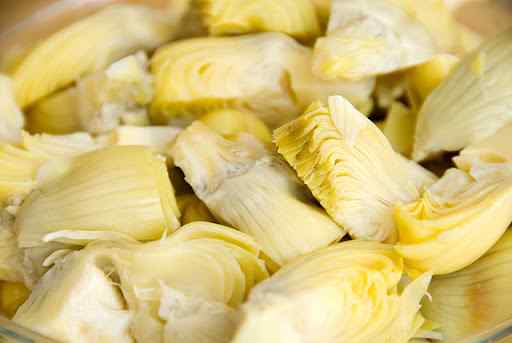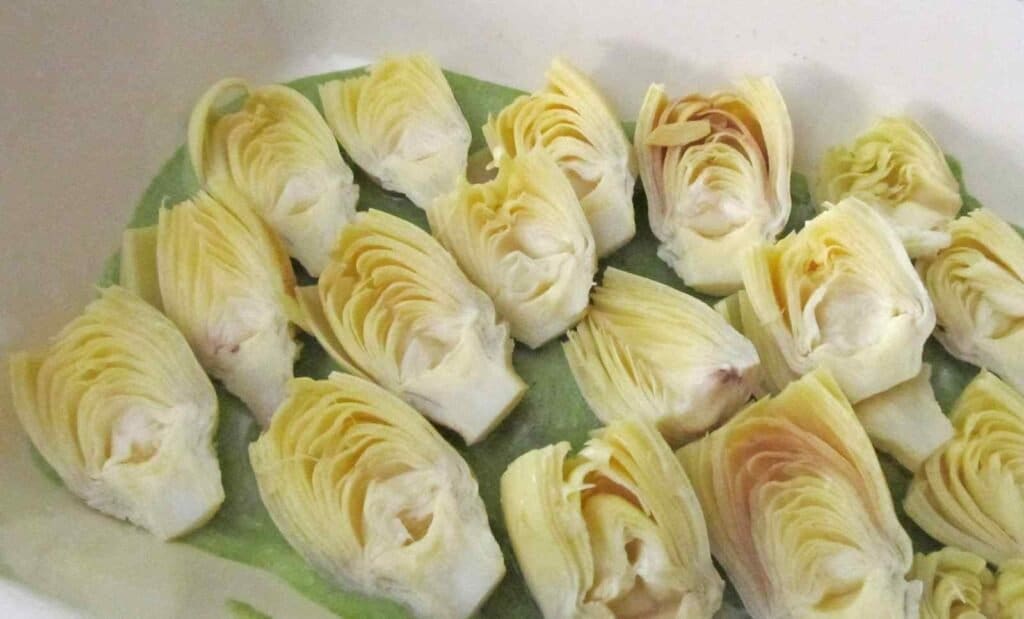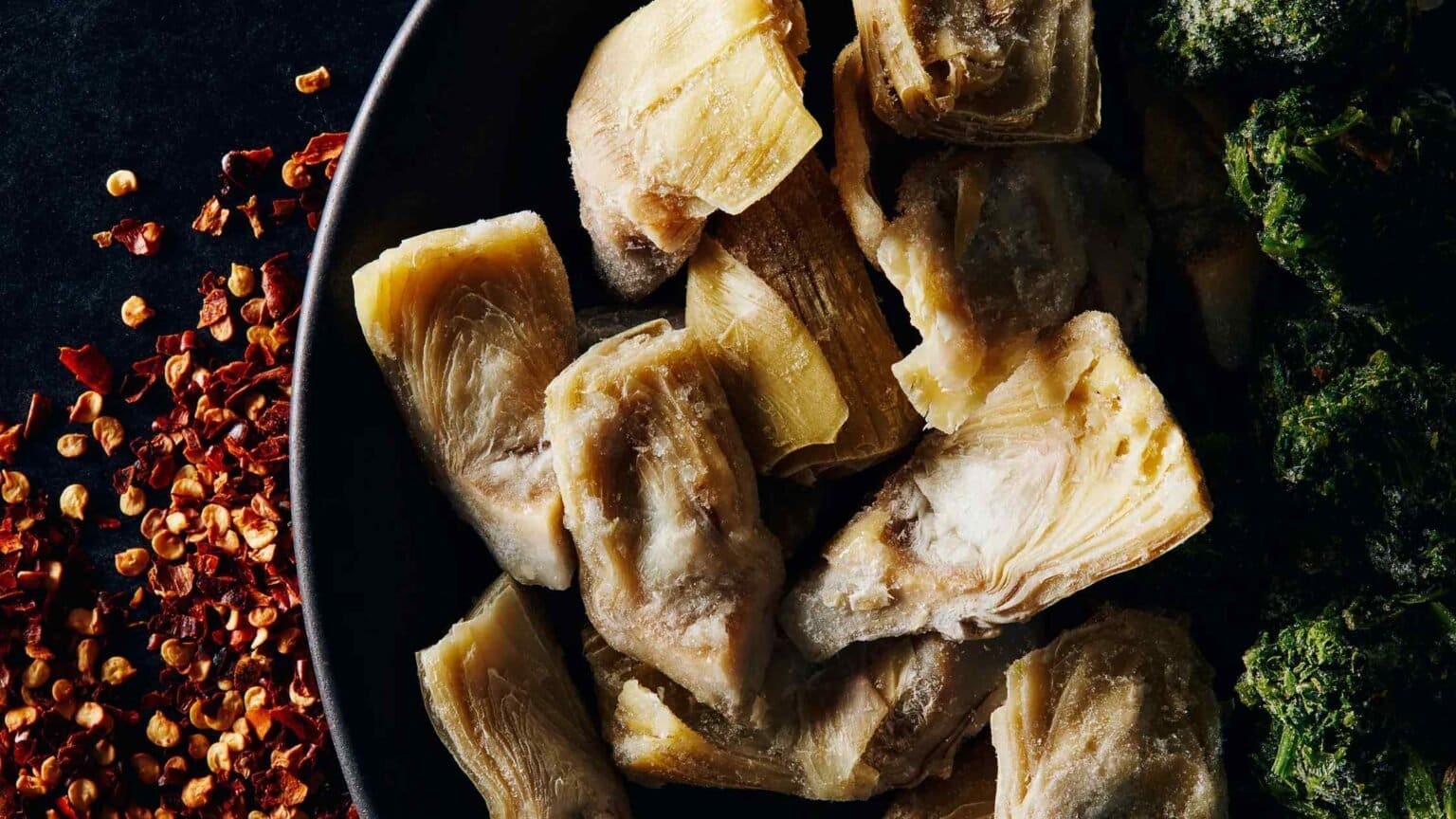I love a good artichoke heart, but let’s be honest, sometimes they’re not so good. A bad canned artichoke heart is pretty easy to spot. Look for bulging cans, weird smells, discoloration, sliminess, or mold.
Want to make sure your next artichoke dish is perfect? Stick around and I’ll show you how to spot the duds every time
1. Bulging Can

A bulging can of artichoke hearts, even with a slight swelling all around or one end popped up, is a major warning sign that hazardous bacteria inside are releasing gases that could cause serious illness.
This dangerous protrusion confirms harmful microbes are thriving in the can, consuming the contents and generating gases that increase pressure.
The degree of bulging is irrelevant – whether barely detectable or ready to blast off, consider it a glaring alert not to consume the contents under any circumstances.
When bacteria taint canned foods, they may produce toxins that lead to botulism, a potentially deadly type of food poisoning. Although botulism is uncommon, the risk is unacceptable.
If you notice any questionable bulging, dispose of the can immediately without opening it for a sniff check. Risking your health over a handful of artichoke hearts is simply not worthwhile. Your wellbeing is infinitely more precious!
2. Unusual Smell
Sniffing for trouble is the next line of defense when checking for spoiled canned artichoke hearts. What should your nose be alert for?
- Normally, these tender morsels have a subtle, slightly vegetal aroma with a hint of brine. It’s a clean, appetizing scent that doesn’t overpower.
- If something’s off, you might detect a sour, vinegar-like tang, a rotten funk, or a metallic twang. These are all warning signs the artichokes have turned.
- An extra-strong odor, even if not outright offensive, warrants caution. It could indicate the artichokes are on the verge of spoiling.
Trust your nose – it knows when something’s not quite right. If the smell makes you scrunch your face or turn away, it’s best to toss that can.
Why risk a bad bite when a fresh, fragrant batch is just a grocery run away? Your taste buds and stomach will appreciate you being a discerning sniffer.
3. Discoloration

When examining artichoke hearts, look for any concerning spots or discoloration. Some color variation like deeper green edges or cloudy brine from natural starches is normal.
However, be on the lookout for worrying signs of spoilage. Pink, brown, or black splotches on the petals are red flags. If the liquid has turned a dark, murky color instead of the usual clear brine, that’s cause for concern.
An iridescent film on the surface of the liquid could indicate bacterial growth. If you notice this telltale rainbow sheen, it’s best to discard the artichokes.
Trust your judgment when discoloration crosses from acceptable variation into alarming territory. Carefully selecting pristine artichoke hearts ensures your dishes turn out beautifully. Your watchful eye protects against using substandard ingredients that would ruin a recipe.
4. Slimy or Soft Texture
When popping open a jar of artichoke hearts, look for tender yet slightly firm texture. Avoid overly mushy or slimy artichokes that:
- Collapse easily at a gentle touch
- Fall apart before eating
- Feel slippery, as if sitting in oil too long
Rinse the artichokes to check true texture, as canning liquid can be deceptively slick. Opt for hearts with a hint of give, like perfectly cooked pasta. Mushy means past prime, so bid those subpar chokes adieu.
Seek delicate, yielding artichokes that gracefully meld into dishes. Choose wisely for optimal taste bud satisfaction.
5. Mold or Unusual Growth

Before enjoying those tempting artichoke hearts, closely inspect them for any fuzzy white, green, or black patches that indicate mold.
These unappetizing growths can appear anywhere, spoiling your marinated delicacy. But don’t stop there. Also look out for suspicious white stringy bits. They might be harmless fibers, but they could also signal spoilage.
If you notice any foreign objects lurking in the depths of the can, steer clear. It’s not worth the risk, no matter how much you crave that tangy taste. Even if only one piece looks questionable, the entire batch is compromised.
Don’t let a moldy artichoke ruin your day. Discard that can without hesitation. Your well-being is more important than a few bites of subpar produce.
Luckily, there are plenty of other cans waiting to delight you with their pristine contents. Stay alert and your artichoke experiences will always be top-notch.



